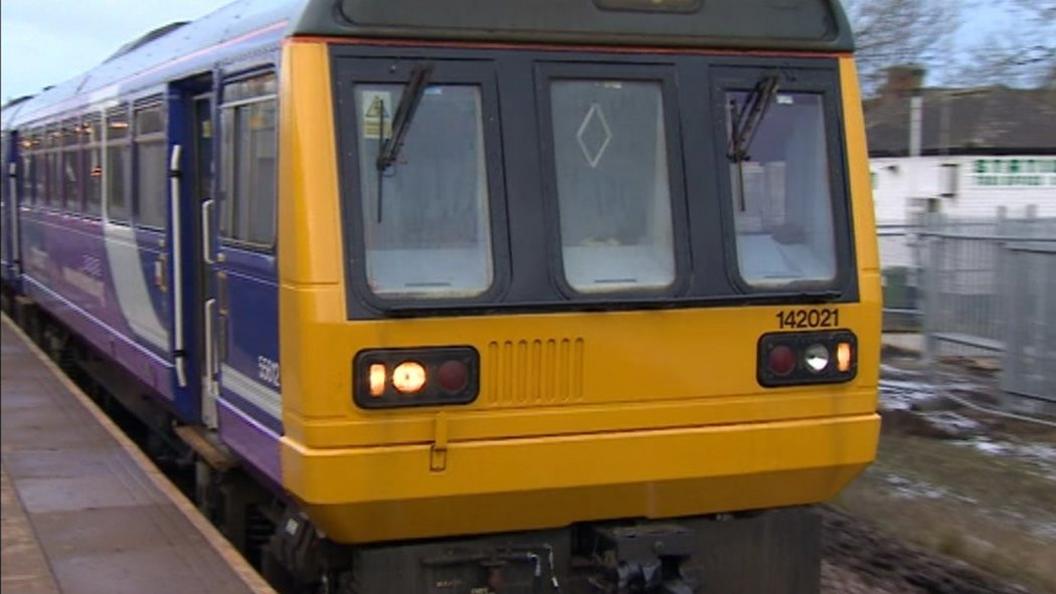Northern to replace Pacers with '21st Century' trains
- Published
Northern will replace the 1980s Pacers in the north of England with 98 new trains.
Rail operator Northern is replacing its 30-year-old Pacers with new trains.
The 98-strong fleet will come into service by Christmas and are capable of travelling at 100mph (160 km/h), will be fully accessible, and have wi-fi and plug sockets.
The first completed train is due off the production line in Zaragoza, Spain in the coming weeks.
Northern's managing director said it was a "landmark moment" for rail travel in the north of England.
David Brown added the "21st Century trains" will "significantly improve journeys".
Once completed the new units will be sent to the Czech Republic for testing, before further trials in the UK.
They are being introduced as part of a programme which has also seen more than 70 trains refurbished.
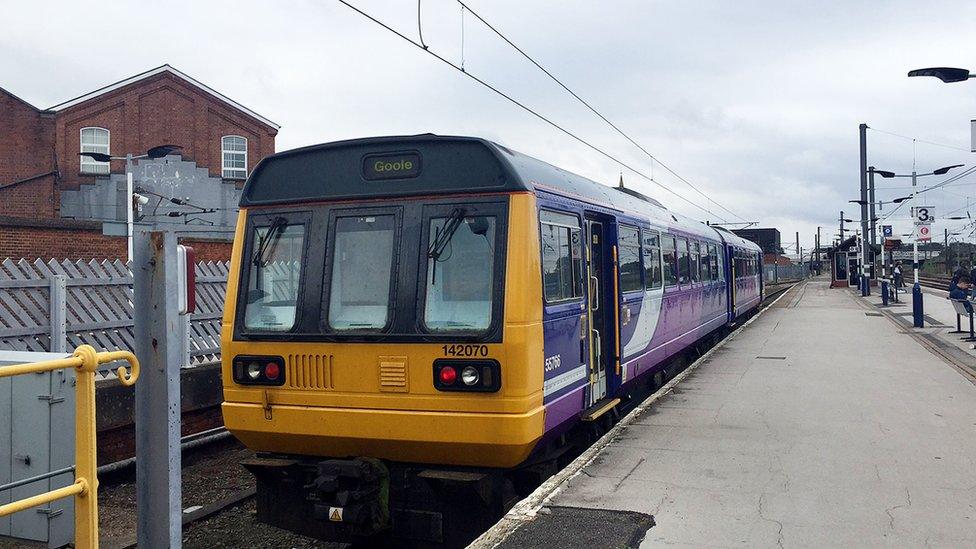
Pacer trains are to be removed by the end of 2019
The trains will replace the out-dated Pacers which were first built in the 1980s and intended for short-term use.
They currently run on routes in Greater Manchester, Merseyside, Lancashire, Cheshire, Yorkshire, Teesside, Durham, Tyne and Wear, Northumberland, Derbyshire and Cumbria.
The government required companies bidding to take over the franchise to replace the trains by 2020.
The Northern franchise was awarded to Arriva Rail North in 2015.
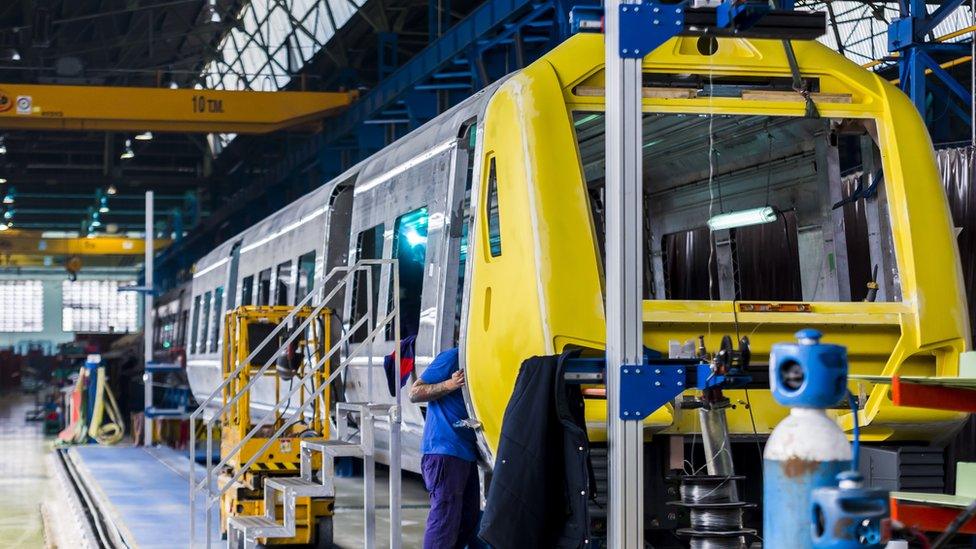
Manufacturer CAF is constructing the new trains
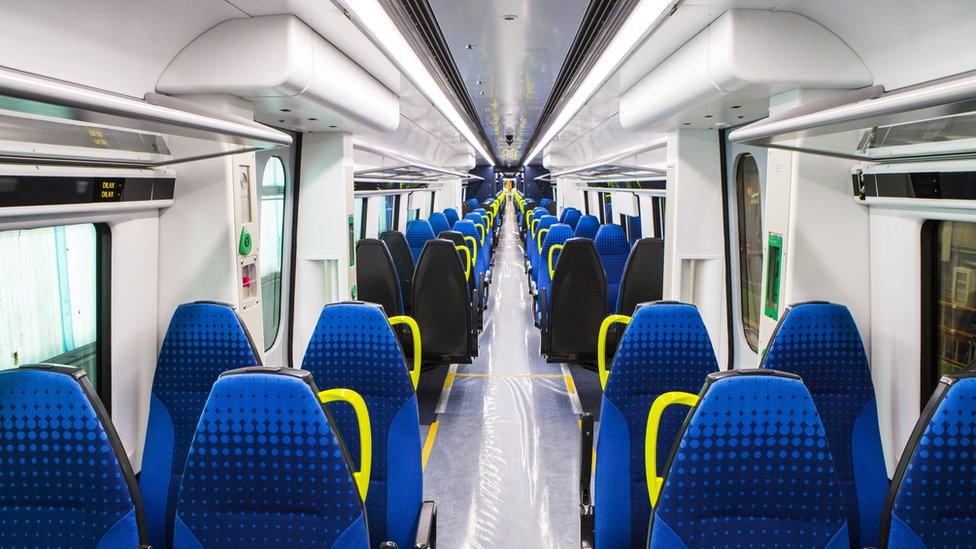
The trains will have wi-fi, plug sockets at every seat and air conditioning
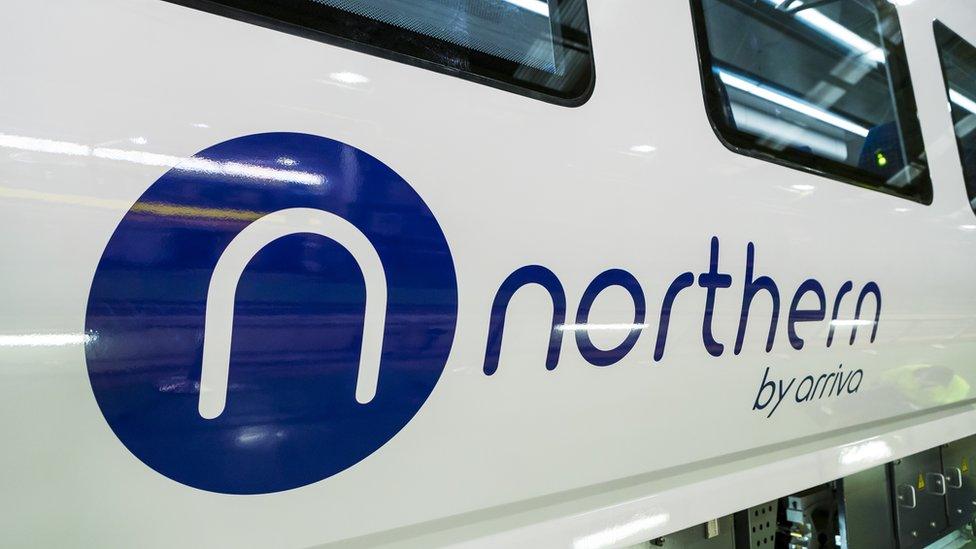
The trains will undergo testing in controlled conditions before being introduced
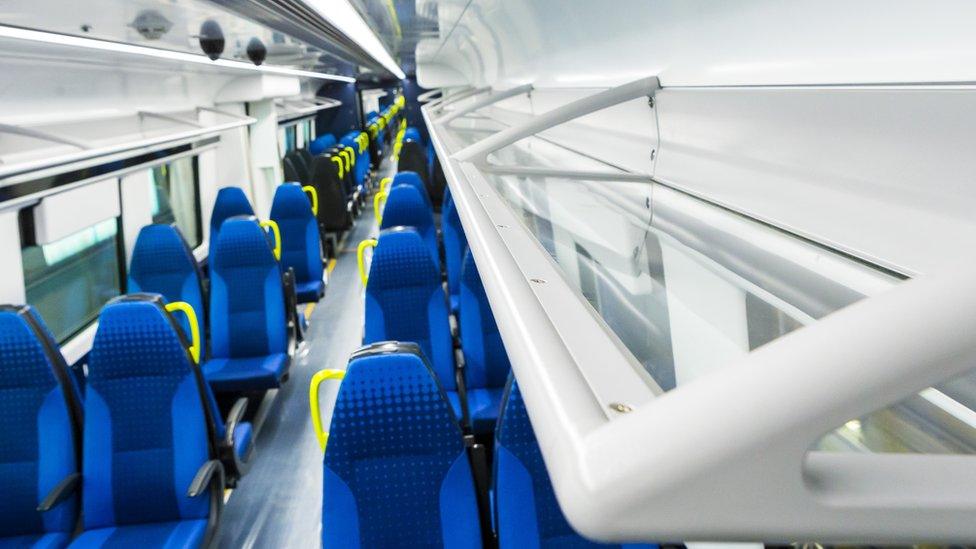
The new train is an electric unit Class 331

Analysis by Spencer Stokes, BBC Look North transport correspondent
The 100mph rolling stock will allow Pacers that were first introduced 35 years ago to be sold or scrapped.
They were designed to have a working life of around 10 years on mainly rural lines, but ended up on crowded commuter services into some of northern England's biggest cities.
Little more than a bus body welded onto a freight chassis, they are are disliked by passengers who feel they are slow, noisy and uncomfortable.
In contrast the new trains all have wi-fi, plug sockets at every seat and air conditioning.
The trains will also have a seat reservation system which passengers can access up to 10 minutes before departure.
- Published5 February 2018
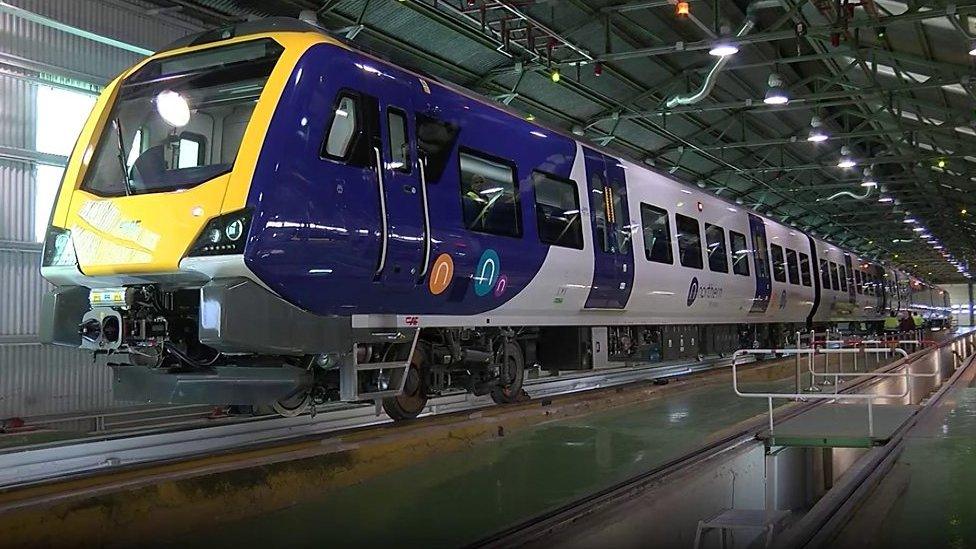
- Published9 December 2015
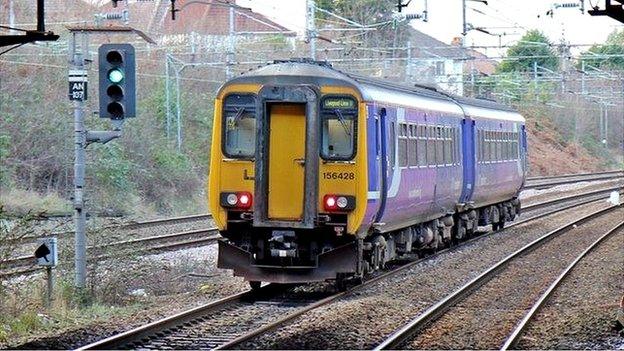
- Published27 February 2015
